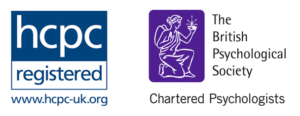Traumatic experiences can have a profound impact on mental health, but not all trauma responses are the same. Understanding the differences between Post-Traumatic Stress Disorder (PTSD) and Complex PTSD provides clarity for both those experiencing these conditions and their families.
Understanding PTSD
PTSD typically develops after a single, identifiable traumatic event. It is characterised by distressing memories, flashbacks, and heightened anxiety as the individual attempts to process the trauma.
Key Features of PTSD:
- Recurrent, intrusive memories or flashbacks
- Avoidance of reminders of the trauma
- Hyperarousal and exaggerated startle responses
- Nightmares and disturbed sleep
- Intense emotional distress when triggered
What Is Complex PTSD?
Complex PTSD arises from prolonged or repeated traumatic events, often occurring in contexts like chronic abuse, neglect, or captivity. It goes beyond the core symptoms of PTSD and affects a person’s self-concept and relationships.
Key Features of Complex PTSD:
- Difficulty regulating emotions in addition to typical PTSD symptoms
- Persistent feelings of worthlessness or shame
- Difficulties trusting others and maintaining relationships
- Negative self-perception and altered beliefs about oneself
- Ongoing feelings of isolation and despair
Main Differences
Nature and Duration of Trauma:
- PTSD typically follows a single significant trauma
- Complex PTSD usually develops after long-term, repeated trauma
Emotional and Interpersonal Impact:
- PTSD focuses on re-experiencing the event and managing fear
- Complex PTSD includes persistent negative self-beliefs and difficulties in relationships
Treatment Considerations:
- Standard PTSD treatments focus on processing the traumatic memory
- Complex PTSD may require additional support to address self-identity and interpersonal issues, often integrating therapies like EMDR, trauma-informed CBT, or attachment-based therapy
Why These Differences Matter
Understanding whether a person’s difficulties align more with PTSD or Complex PTSD can help tailor therapies that address both the traumatic memories and the broader impact on self and relationships. This distinction is crucial in creating a comprehensive, individualised treatment plan.
When to Seek Help
If you or a loved one are experiencing symptoms such as flashbacks, emotional numbness, difficulties in relationships, or persistent negative self-views following trauma, professional guidance can be invaluable. A qualified therapist can help explore these symptoms, determine the underlying issues, and jointly craft a path toward healing.
Remember: Recovery is a journey. With the right support, strategies can be developed to manage symptoms and rebuild a positive sense of self.








